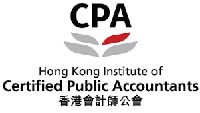Elon Musk has made his name by undertaking to do the unthinkable. Investors argue that, even when he misses his targets, he may change the market and reap first mover advantage.
There are the rockets and electric cars, of course, But last year he undertook to build the world’s biggest battery, the 100 MW Hornsdale power reserve, in South Australia. Tesla would provide it for free if it missed the deadline – which it met and now neighbouring Victoria wants one too at Stawell.
This week, Tesla completed what is essentially a large tent to house its third production line at Fremont, CA. It took a month to build and cost a mere $2.8 million.
And now Chicago. This week, the Chicago Infrastructure Trust, on behalf of the city, chose Musk’s separately listed The Boring Company to Design, Build, Finance, Operate and Maintain the Chicago Express Loop, an underground railway connecting O’Hare airport to Block 37 in the CBD. Autonomous battery – powered “skates” each carrying 8 – 16 passengers at up to 150 mph will depart every 30 seconds taking 12 minutes to make the journey instead of the current 40. And best of all, the project will be 100% privately funded with no taxpayer subsidies.
There is some further detail to the project in that TBC beat three conventional consortia in response to an RFQ from the city. However, much needs to be sorted out, not least the route; a capacity of 30 passengers per minute is not much in that it would take ten minutes to clear a single B787 Dreamliner; and how the financing risk is to be shared behind that headline will be crucial for no conventional airport rail link makes money on a stand-alone basis and much of what TBC promises is anything but conventional.
On the face of it, for investors in TBC, this is another thrilling ride (no pun intended) with Elon, full of heroic downside risk on costs; but, this time, the upside opportunity is capped. The fare box has limits; there will be no prospects for developing real estate along the route; and there is little likelihood of TBC making out like bandits as happens with the occasional PPP.
For Chicagoans, this sounds too good to be true. But so what? If the project succeeds, it will be revolutionary, comparable to Shanghai’s expensive Maglev but with a more centrally located terminus. If it stumbles, it could resemble Hopewell’s BERTS elevated road and rail to Don Mueang airport whose unfinished pillars still stand as Bangkok’s Stonehenge. But if TBC fails to deliver and leaves a partially bored tunnel, the city could take it back and employ a conventional contractor to finish it off such that the city eventually gets itself a new link for perhaps a fraction of the original cost. All that it would have cost the city is a few more years of putting up with the 16 stops on the existing Blue Line.
This could therefore be a gift horse, not a Trojan one. Nonetheless, look out for early termination rights on both sides, city support for the debt service (as opposed to outright subsidies), the city building ancillary infrastructure such as modifying the station at each end and other such nuancing of the risk.







